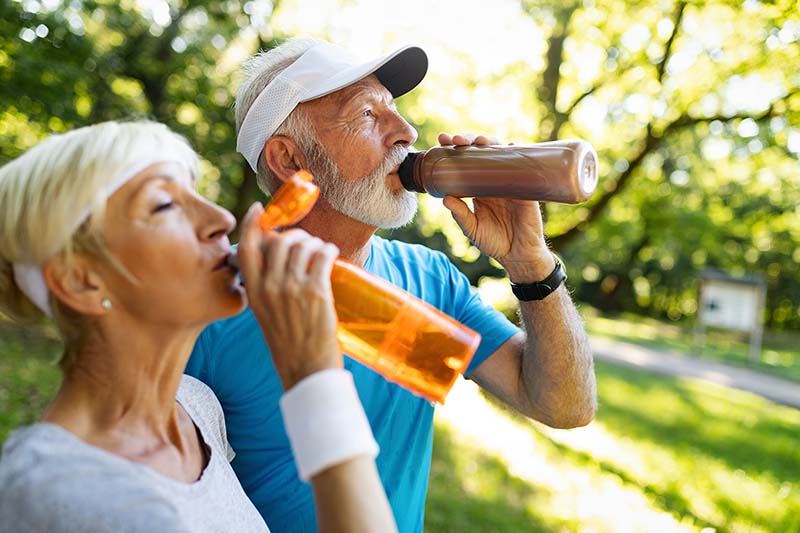Avoiding Osteoporosis: 5 Tips for Keeping Your Bones Healthy as You Age
Osteoporosis affects around 200 million people. It’s time to act.

| Find a Medicare Advantage Plan that's right for you. Click here. |
|---|
If you often find yourself questioning whether the creaking sound you hear is coming from the stairs or your knees, then you’re in the right place.
The older you get, the more important it becomes to be aware of the state of your bones. Your skeleton supports and protects your body as well as produces blood cells. Over 200 million people suffer from osteoporosis (or bone loss).
Here are a few ways you can help keep your bones healthy as you age:
Don’t skip out on dairy
Remember the times when your mom told you to finish your glass of milk, so you’d have strong bones? Well, she was onto something.
As you age, you’re more prone to bone loss. This is especially true for women. Your body need high-quality supplements or foods rich in calcium and vitamin D to maintain bone density. For example, research has found that women over 51 need a minimum of 1200 mg of calcium a day to prevent osteoporosis.
Strength training
Those dumbbells might feel like they are breaking your bones when you lift them, but they are actually doing the opposite. Strength and resistance training, like weightlifting, builds muscle, which in turn builds stronger bones and reduces the risk of bone fractures due to osteoporosis and other related conditions.
Ditch the drinking and smoking
There are numerous benefits to skipping out on alcohol and cigarettes, especially when it comes to protecting your bones. Studies show that osteoporosis patients who reduced their alcohol consumption and smoking saw improved symptoms of bone loss.
Mind your medications
As women age and approach menopause, they may experience lower levels of estrogen, which has been linked to a loss of bone density. Hormone therapy or other medications, for example, may be good options to help maintain bone health over time.
Get a bone scan
If either you’re concerned about the state of your bones, osteoporosis runs in your family, or you’re post-menopausal, consider talking to your healthcare provider about setting up a bone density test. This radiological scan can determine the state of your bones and help you work with your healthcare provider to make a plan to keep them healthy and strong.
Related: Six Ways to Keep Your Bones Strong and Healthy
No matter your age, it’s never too early or too late to focus on improving your bone health. If you are aware of any health risks that run in your family, or if those creaking noises do come from your knees, it might be time to connect with your healthcare provider to learn what you can do to protect your bones.
Related: 5 Tips to Healthy Aging





